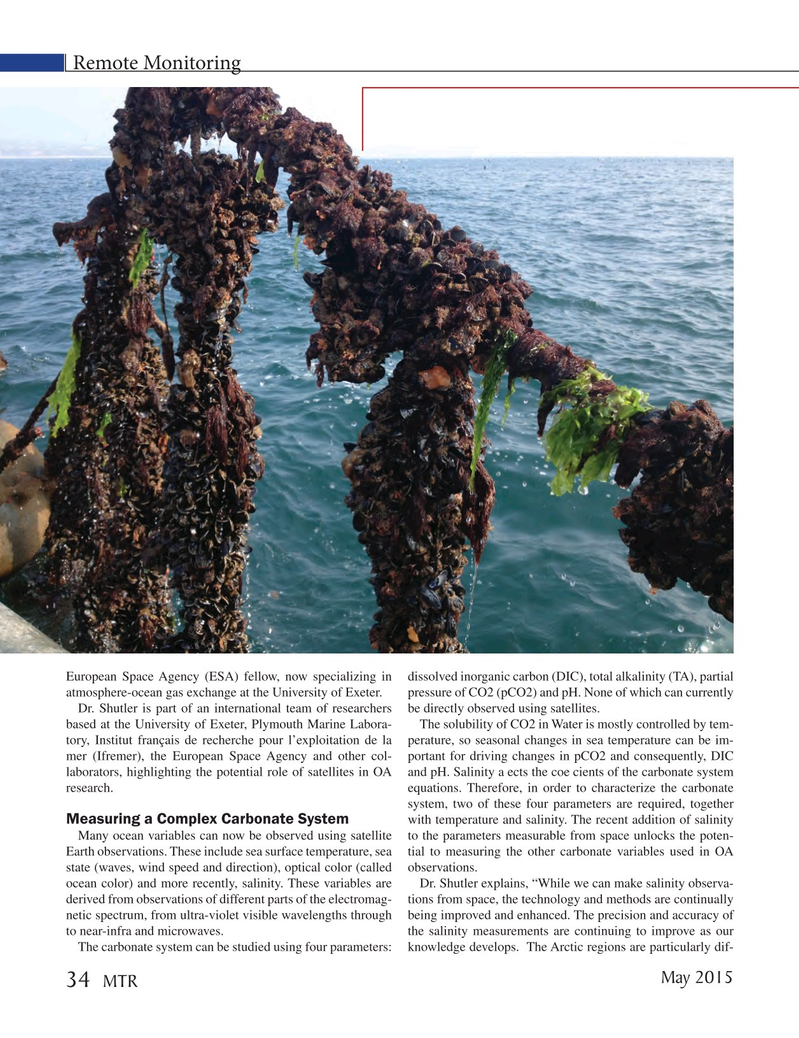
Page 34: of Marine Technology Magazine (May 2015)
Underwater Defense
Read this page in Pdf, Flash or Html5 edition of May 2015 Marine Technology Magazine
Remote Monitoring
European Space Agency (ESA) fellow, now specializing in dissolved inorganic carbon (DIC), total alkalinity (TA), partial atmosphere-ocean gas exchange at the University of Exeter. pressure of CO2 (pCO2) and pH. None of which can currently
Dr. Shutler is part of an international team of researchers be directly observed using satellites. based at the University of Exeter, Plymouth Marine Labora- The solubility of CO2 in Water is mostly controlled by tem- tory, Institut français de recherche pour l’exploitation de la perature, so seasonal changes in sea temperature can be im- mer (Ifremer), the European Space Agency and other col- portant for driving changes in pCO2 and consequently, DIC laborators, highlighting the potential role of satellites in OA and pH. Salinity aects the coecients of the carbonate system research. equations. Therefore, in order to characterize the carbonate system, two of these four parameters are required, together
Measuring a Complex Carbonate System with temperature and salinity. The recent addition of salinity
Many ocean variables can now be observed using satellite to the parameters measurable from space unlocks the poten-
Earth observations. These include sea surface temperature, sea tial to measuring the other carbonate variables used in OA state (waves, wind speed and direction), optical color (called observations. ocean color) and more recently, salinity. These variables are Dr. Shutler explains, “While we can make salinity observa- derived from observations of different parts of the electromag- tions from space, the technology and methods are continually netic spectrum, from ultra-violet visible wavelengths through being improved and enhanced. The precision and accuracy of to near-infra and microwaves. the salinity measurements are continuing to improve as our
The carbonate system can be studied using four parameters: knowledge develops. The Arctic regions are particularly dif-
May 2015 34
MTR
MTR #4 (34-49).indd 34 MTR #4 (34-49).indd 34 4/28/2015 9:51:53 AM4/28/2015 9:51:53 AM

 33
33

 35
35
